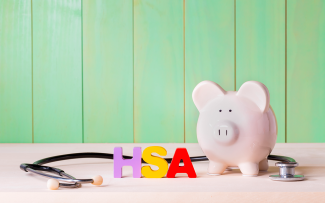
The Health Savings Account — Is It Right for You?
Affiance Financial is pleased to share the following article by Steven E. Warren, CPA, MBT. Mr. Warren practices accounting and consulting at Schechter Dokken Kanter, a Minneapolis CPA and consulting firm. Mr. Warren can be contacted at swarren@sdkcpa.com or 612-332-9391.
Under the Tax Cut and Jobs Act, many taxpayers will no longer itemize their deductions because of the new higher standard deduction. Consequently, they will no longer receive a tax deduction for charitable contributions and state and local income tax payments among other expenditures. Untouched is the potential triple tax break available to holders of health savings accounts (HSAs).
High Deductible Plan Requirement
To be eligible to participate in an HSA, an individual must be enrolled in a high deductible health plan (HDHP). For 2019 a qualifying HDHP must have an annual deductible of at least $1,350 for self-only coverage and $2,700 for a family plan.
A qualifying HDHP must have an upper limit for out-of-pocket expenses. The 2019 limits are $6,750 for self-only coverage and $13,500 for a family plan.
A high deductible plan normally covers preventative care such as annual physicals and immunizations. But there is usually a sizable gap before coverage kicks in for treating costly illnesses and injuries.
Tax Break for Contributions
Contributions to HSAs can be pre-tax when an employer plan allows it. A pre-tax HSA contribution is not subject to income taxes or payroll taxes. To the extent a year’s contribution limit has not been reached with pre-tax contributions, an after-tax contribution is deductible as a federal adjustment on your tax return.
You have until the mid-April original due date of your tax return to make the contribution. That may make maxing out your HSA one of the few moves you can still make to reduce your 2018 tax liability.
The 2019 contribution limits are $3,500 (up from $3,450 for 2018) for a single plan and $7,000 (up from $6,900 for 2018) for a family plan. An additional $1,000 can be contributed when the HSA owner is at least age 55. However, contributions are only allowed until the account participant is enrolled in Medicare (typically age 65).
What Can HSA Funds be Used for?
HSA funds can be used to purchase most items or services that would qualify as an itemized medical expense deduction if purchased with after-tax dollars. An exception is health insurance premiums unless the premiums are for:
- long-term care insurance (subject to limits).
- health care continuation coverage (such as coverage under COBRA).
- health care coverage while receiving unemployment compensation.
- Medicare and other health care coverage if you were at least age 65 when the expense was incurred (other than premiums for Medicare supplemental policies such as Medigap).
When Medicare premiums are withheld from social security income you can reimburse yourself for the payment out of your HSA. Over-the-counter drugs normally are not qualifying expenses unless it is insulin or you have a prescription for the drugs.
A distribution for a nonqualifying use of HSA funds by a participant not enrolled in Medicare is subject to income taxes and a 20% penalty. Once enrolled in Medicare, nonqualifying distributions are subject to income tax but the penalty no longer applies.
Savings Strategy
The funds in your HSA remain yours whether you change insurance plans or change jobs. Remaining funds roll to the next year without any requirement to spend.
If you can afford to do so, a good long-term tax planning strategy may be to pay for medical expenses with out-of-pocket after-tax funds. By not using funds from your HSA, the investments grow tax-free and can be used for medical expenses in retirement. When used in this manner, you receive a tax deduction when you contribute to the account plus tax-free growth and tax-free withdrawals.
You will need to save your unreimbursed medical receipts to use as your ticket to tax-free income later. Some HSA administrators will store scanned copies of receipts for you to make this task easier. With proper documentation, withdrawals for qualified medical expenses can take place at any time. For example, if you have little out-of-pocket medical expenses when retired but you want to tap your HSA, you can reimburse yourself for a qualifying medical expense that you paid years prior to the HSA withdrawal as long as you have the support for your earlier payment.
Is an HSA Right for You?
While the tax breaks for an HSA are a nice incentive, HSAs are not for everyone. For many the key deciding factor is what type of health insurance is best for you and your family. You need to compare the expected out-of-pocket expenses for you and your family under both a high deductible plan and a traditional plan. Compare the benefits you can expect to receive when you make claims.
If you are always burning through your deductible, or coverage for you with a high deductible plan doesn’t stack up to the coverage you’d get with a traditional plan, an HSA probably is not the best choice for your situation. But for those who expect to be relatively healthy, the lower premiums of the high deductible plan and tax advantages of the HSA may be very appealing.
This article is being provided for informational purposed only. It is not intended to provide specific tax advice. For specific tax advice, the services of an accountant should be sought. Affiance Financial does not serve as an accountant and does not prepare tax returns. All information is believed to be from reliable sources. However, we make no representation as to its completeness or accuracy.

